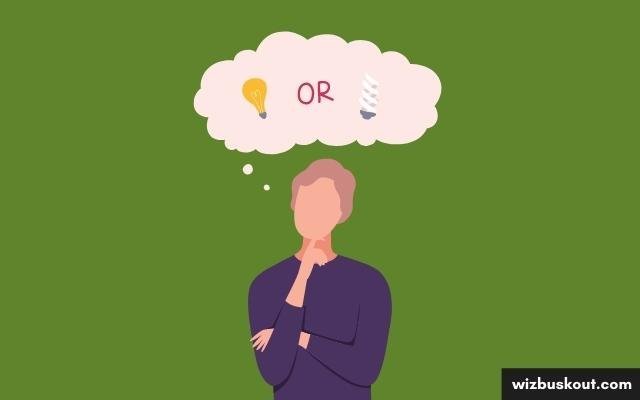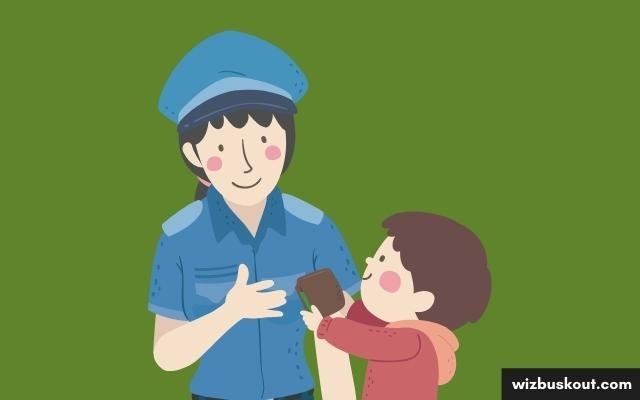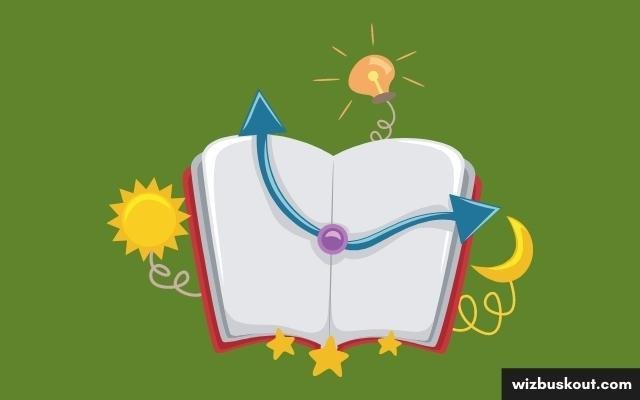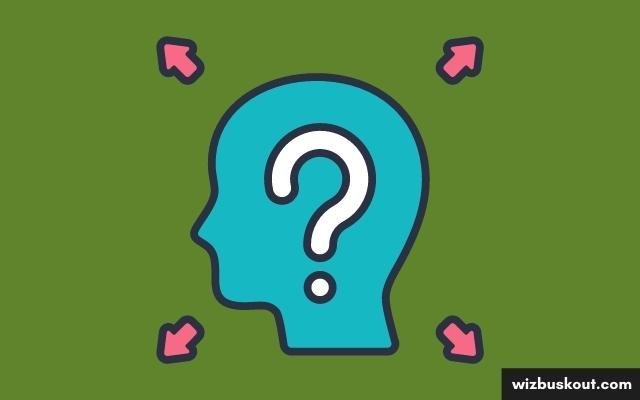1-Line Summary: Better Decisions Fewer Regrets by Andy Stanley teaches you why you should pause a moment before and ask yourself wise questions to make better decisions in your life and have fewer regrets.
Better Decisions Fewer Regrets Summary
[amazon box=”0310126568″ template=”horizontal”]
In this book summary, you will learn a few things about decision-making that will help you make smarter choices in your life.
Without wasting any time, let’s get started!
Lesson #1: Good decisions make your life. Bad decisions make you regret.

If you could improve one thing in your life, what would be the best thing?
Well, the best thing would be your decision-making skill.
We make decisions at every moment of our lives.
In fact, even when we ignore making a decision, it’s also a decision of ignoring reality.
If you make good decisions, you will live a much better life.
And if you made bad decisions, there is no turning back.
We all regret the mistakes we made in the past, don’t we?
What do you think led to those mistakes?
The problem was:
You didn’t know how to make the right decisions.
You were under the control of your urges, feelings, and emotions.
It’s the case with everyone.
During that moment, we don’t think logically.
We are emotional beings, after all, aren’t we?
But life doesn’t care if we are emotional or logical.
If you make the right decision, you will be happier.
And if you make a terrible decision, there will only be a lot of regrets.
The author says that our choices define our futures. True indeed.
We all know this already, don’t we?
The deeper issue is that we don’t realize it right away whenever we make a terrible decision.
Also read: You Are Not So Smart (Book Summary)
Every person thinks that they are making the right decision.
This happens because we don’t see the consequences of our decisions or actions right away in many situations.
It’s hard to visualize the long-term consequences. Also, it requires a lot of effort to plan everything, which we want to avoid.
Another problem is: We are not very good while making personal decisions.
Suggested read: The Art Of Thinking Clearly (Book Summary)
We all have a big ego that gets in the way.
Most of us don’t want to change the systems we are currently following even when they are unproductive and harmful in the long term.
Fortunately, you made the right decision to read this book summary, and of course, you will be rewarded with great knowledge by the end of this summary.
All you need to do is: Keep reading till the end.
Lesson #2: Be honest with yourself when you make a decision.

Honesty!
Yes, you read that right.
No good decision can be made without it.
The author says:
“Most of us are very good at selling lies to ourselves.”
Aren’t we?
We all lie, although we don’t accept it right away.
Weird, isn’t it?
But the question here is:
Why are we like that?
Why do we lie to ourselves when it only hurts us eventually?
The thing is:
We all are guided more by the emotional part of the brain than our logical part of the brain.
Especially, when the desire to make a particular decision is big, our mind starts making hundreds of reasons (which are not real) to justify those ideas.
The author even says that justifications are just lies.
Truth doesn’t require any justification.
And it’s true indeed.
What needs justification is a lie.
Truth is never complicated.
Suggested read: The Voice Of Knowledge (Book Summary)
It’s just that we are complicated beings, so we twist things based on our beliefs or emotions.
Think about the time when you know you have to stop eating food.
Your stomach tells you that “It’s enough. Stop eating now!”
What do you say then?
You say “Oh, I can handle a little more. I know I can.”
See how we fool ourselves and ignore the reality?
What is missing here? Honesty.
Yes, if you are always honest with yourself, you tend to make good decisions.
Accept the truth!
This is the first step.
Don’t fool yourself.
Realize that by fooling yourself, you are only preparing for a bad life.
What type of life do you want: Good or Bad?
I bet you would want a good life. (Nobody wants to have a bad life)
Recommended reading: The 15 Invaluable Laws of Growth (Book Summary)
But secretly, by being dishonest with ourselves, in our thoughts, in the heat of the moment, we end up making bad decisions.
The author advises that you always take a pause and ask:
“Am I being honest with myself?”
If the answer is no, then think about why you are lying to yourself.
“What fact do I want to hide?”
“What will I gain by lying to myself?”
“Do my thoughts represent the reality?”
“Am I being clever? Would this help really?”
Imagine the consequences of lying to yourself.
Be honest!
Let me explain with an example:
Imagine you are in a mall or supermarket.
And all of a sudden you stumble upon a flashy dress.
You are attracted…
You want it…
But wait… before you grab your credit card, ask yourself:
“Do I really need this?”
Your mind might say:
“Yes, it’s the last unit, you need this! Plus, it has a discount. It’s on sale!”
Now, ask yourself:
“Am I being honest?”
If you are truly honest, you would see immediately that your emotions are guiding you. You don’t really need that dress.
It’s just your urge to buy.
When we bring Honesty into the picture, your logical brain takes over your emotional brain.
And when you see how dumb you were in that moment, you laugh at yourself and move ahead.
It’s a funny moment when that happens.
And don’t you underestimate this advice. It could save you thousands of dollars!
A lot of people destroy their lives by giving in to their bad habits or bad spending habits.
If only they were a little honest, they could turn their lives around.
So embrace honesty while decision-making and reward yourself with a good life.
Lesson #3: Think about what you’d like to make permanent in your life story.

According to the author, we all are writing our stories every day.
Imagine that you write a chapter of your life story every single day.
And the choices you make every day are the turning points in your story of life.
Would you want your story to be dull and confusing?
Of course, not. Right?
But when we look at our lives, they are messed up.
Everything is confusing and boring.
Our lives look like a flop Hollywood movie.
Where nothing interesting is happening.
The question is:
How thinking in terms of a story can make your decision-making better?
The thing is:
Story gives you a broader perspective on life.
It’s like connecting dots.
When you see only a part of the story, everything is confusing. But when you see the entire story, it makes sense in the end.
And if it doesn’t, then probably it was a bad story.
When you are making any decision, be it related to your relationship, career, etc.
Ask yourself:
“Do I want this in my story?”
Maybe you had a fight with your boss, and you want to resign.
Think again, would you want your story to turn like this? Does it even matter?
If it does matter to you, then go ahead.
And if it doesn’t then check your emotions.
Maybe they are overpowering you and have clouded your thoughts.
The point worth noting is that no matter how good you want your story to be, it won’t be exactly the way you want it to be.
The only thing you can control is your action.
You have a choice always.
But what happens after you make a decision, it’s not in your hands.
It makes your story interesting though.
The author suggests that you also look at it another way.
Think about “what you want others to talk about you?”
If you notice carefully, almost all of our gossips are stories.
People talk in terms of stories. People love sharing and discussing stories.
We get bored when it comes to studying complex concepts.
But stories are fun and keep us hooked.
So whenever you feel stuck, think if you want a particular chapter in your story or not.
It’ll give some clarity and help you make a better decision.
Recommended read: The Alter Ego Effect (Book Summary)
Lesson #4: Don’t ignore your gut feeling while making decisions.

Although our emotions often stop us from making a rational choice, they are not always bad.
Sometimes, they give subtle cues about our decisions.
For example, let’s say you encounter a “special limited-time offer.”
It sounds too appealing at first.
But at the back of your mind, you have a feeling or thought that “If something sounds too good to be true, there is something wrong.”
The weird thing here is:
Your rational brain is not able to understand what’s wrong.
You can call it your sixth sense.
But did you get the point?
The intuition warns us of potential threats.
We tend to ignore our feelings while making decisions. But the author says that you should pause and pay attention if you are feeling any kind of tension.
That’s your gut telling you and trying to help make a better decision.
The problem with the rational brain is: If we don’t have enough information, we can’t make the right choice. But our subconscious mind has impressions from our memories.
There is much more data in there. That might or might not be true.
But something is better than nothing, right?
So always pay attention to your emotions or feelings.
Don’t go crazy and try to suppress them. Take them into consideration.
Also, use your rational brain as well.
Use both of them and make the right decision.
Also read: The Gift Of Fear (Book Summary)
Lesson #5: Figure out what’s the wise thing to do while keeping in mind your desired future.

The author asks the readers to think with a perspective.
Instead of asking what’s right or wrong, we should ask:
“What’s the wise thing to do?”
Probably, you are wondering what’s the difference here.
The thing is:
Nothing is fully right and nothing is fully wrong.
For example:
There are moral values that tell us to do the right thing and not to do the bad thing.
But how does one judge and measure how much is right?
Getting it?
Sometimes, a decision can be right. But is it wise?
Sure, you can choose any career for yourself, but is it wise?
Sure, you can enter into a relationship, and probably if you are lucky, it may turn out to be good. But is it a wise move?
We all have our judgment about what counts as good and what counts as a sin.
But is it wise?
Right can be equally wrong if there is no wisdom(or understanding) behind it.
The author suggests that you consider your past experiences and your dreams while making decisions. They will help you make a wise decision.
Haven’t it happened to you before: you made a decision thinking that it’s right, but later realized that you were just stupid that time?
It’s hard to figure out what’s is actually right unless you start seeing it with a broad perspective.
So whenever you are about to make any decision.
Stop for a moment and ask:
“Is it a wise thing to do right now?”
“Am I sure that this is a wise decision?”
I’m sure this will help you decide better.
Bonus Lesson: Ask good questions to make better decisions.
So far, if you read carefully, you must have noticed one thing:
We are discussing what questions we should ask before making any decision, be it big or small, in our lives.
So how do you figure out which questions are worth asking for?
And are these the only questions you should restrict yourself to?
Simply, no.
You have to develop a sense to figure out which questions are worth asking.
Not every question is worth finding an answer to.
In light of your career, let’s say that you don’t want to learn photography. It’s fine. For you, then a question like “How do I start taking better shots?” would be pointless.
The question that helps you grow is the right question.
One that brings clarity to your life.
One that helps you find a direction in life.
All such questions are right questions that you must ask.
Sometimes, you may find yourself stuck if you don’t have enough information.
For instance:
If you don’t have enough data about something, you can’t ask the right questions.
In that case, the right question would be “How do I learn more about this?”
You can ask other questions as well.
But I believe the questions provided by the author in this book are easy and highly actionable. If you don’t want to spend more time thinking, you can use those questions in your daily life to solve decision-related issues.
Remember, the reason we should take a little time before making any decision is that we don’t want to have any sort of regrets in our lives.
And as the title of this book says, “Better Decision, Fewer Regrets.”
Now It’s Your Turn
I hope you got a lot of wisdom from this book summary.
Try these techniques while making everyday decisions and let me know if they helped by leaving a comment.
And don’t forget to subscribe to my email newsletter to stay updated with future book summaries.
Thanks for reading.
Want to consume more insightful, power-packed content like this in the future?
Subscribe to the weekly email newsletter.
Subscribe to YouTube channel for animated video books.
Try Amazon’s Audible 30-days Free Trial and Get 2 Audiobooks for free.
